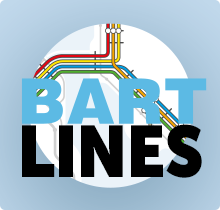I placed the shiny red shape in the exact center of the table. Martín looked at it dubiously. "That's the strangest cherry I've ever seen. Whoever made it needs to get their printer calibrated ... [+]
"You could have killed someone's baby."
Her face softened instantly at the word "baby," emptying of rage. ("Lability," the neurologist said. "It's part of the disease.")
"But I didn't, Lori," she said in a singsong voice. Explaining something obvious I had neglected to consider.
I parked the Saturn outside my apartment in San Jose. My theft: It was the one thing she never forgot.
To make up for it, I took her on drives, retrieving her every Saturday from Rossmoor (in my Jeep). At first I simply hoped to distract her from the misery of caretakers and carelessness ("I'll call the police," she still muttered, but without fury); then, as time went on, to try to bring her some sort of pleasure, or at least relief. I brought photos of my adult children. "He should get rid of that chazerai on his face," she said of my son, not able to recall the word for "beard." Of my daughter: "She's so pretty. How did you have a pretty girl?"
My love for her was seasoned with old grievances, hurt feelings.
We drove into the wilds of Tilden Park, where eucalyptuses scented the air with camphor and mint. Through stately Piedmont: the grand homes on empty streets. ("The big machers live here," she said disdainfully, wary of bigshots.) Once I drove her to Ocean Beach. We fought crowds on the Bay Bridge, then inched down Geary. "I grew up here," she marveled as we passed Marufuku Ramen, the Boom Boom Room, Tofino Wines, Pig and Whistle, Dong Bei Mama.
She spent her childhood in a Jewish orphanage in Cleveland, but I said nothing.
Often, on the trip back to San Jose, I wondered whether all the driving was worth the trouble. By the time I walked her to her apartment, she remembered nothing of what we'd seen. "What are you doing here?" she'd ask Joyce, her weekend caregiver, with now-customary truculence, no happier than she'd been when we'd set out.
My father taught my mother to drive when they moved to Oakland in 1952. He was just back from Korea: the boyfriend she'd waited for. "We're going to California," he announced on their honeymoon, with newly minted imperiousness befitting a husband. "I've been to war. No more winters for me."
They settled in Maxwell Park, near the dry cleaner my father was able to buy with G.I. Bill loans. My mother learned to drive on the Mills College campus and the grounds of the Mountain View Cemetery. She loved driving. "I'm in charge," she said. "I go where I want. No one tells me what to do." Alone in her olive-green Dodge Dart, she ruled; her will was sovereign.
Perhaps our treks through the Bay Area reminded her of the life that was over, everything she'd lost.
One Saturday, I belted her into the passenger seat and headed west. In the Caldecott Tunnel she was frightened. "Why is it nighttime!" she cried, and then, when we emerged, "I'll call the police," as if someone in an official capacity might talk some sense to the sun. On Highway 13, she turned to me. "Did I live with you?" she asked.
My heart sank. She did not know who I was or why she was locked in a car with someone who made her go to unrecognizable places.
"A long time ago," I said. "I lived with you for eighteen years. I'm your daughter."
"Oh, I know that," she said, as if I'd had the nerve to tell her grass was green. "What about him?"
"Yes. He was your husband. My father."
"Tell me about him."
I told her about Mel's Dry Cleaning: how he was such a hard worker, how the customers loved him. About his penchants for oxtail soup and black licorice. The way he had taken up bird-watching just before his stroke. How she had waited for him to come back from the war.
"I don't remember him at all," she said mildly. "Isn't that funny?"
I seethed as I steered the car off the freeway. Thousands of dollars' worth of gas, countless hours of inane, unappreciated conversation. Locomotion for its own sake, transporting her to places that held no meaning and dissolved into ether before they were out of sight.
Then, turning onto our old street, I heard her gasp. I pulled to the curb.
"There!" she said, pointing. "I used to give you baths in the sink!"
She was pointing to our old house, looking nothing like it had when we lived there. Drought-tolerant shrubs instead of a lawn; fresh gray paint over what had been Ace-Bandage-colored stucco; a new deck, new front door.
"Right there!" She lowered her gnarled finger and squinted. She was different: placid, sure of herself. We sat and sat. Every once in a while she nodded. "Baths in the sink," she said.
I didn't want to leave.
Eventually, though, I drove us away, over Fish Ranch Road this time—not wanting to chance the tunnel—and back to her little apartment on the tenth fairway, which she felt gave her address a certain cachet. (When she moved in, I asked her if she'd like to learn the game. "Only the machers play golf," she replied.)
All the next week, I scoured old photo albums, knowing it was there. I rifled through pictures of family trips to the Grand Canyon and Tahoe, birthday parties attended by children whose names I no longer remembered. My father and two of our neighbors in Maxwell Park at a block party, wearing women's wigs and pretending to sing like the Supremes. My mother modeling a new cocktail dress, feeling coquettish and a little silly.
When I finally found it, I, too, gasped, just as she had last Saturday. I couldn't wait for the weekend to come.
"Ice cream," she said, as I buckled her into her seat.
"We'll stop at Loard's," I said. "But first let's go back to the old house."
"What old house?" she said, irascible, prickly.
She was silent as we made our way over the hill to Oakland, fidgety as we changed freeways and headed south. I snuck glances at her as we drove. She stared out the passenger window, silent. I wondered what was in her head: thoughts as faraway and wispy as clouds, or simply blankness, a gray slate. Or maybe she was just angry that I hadn't followed her directive and bought her the vanilla milkshake she wanted.
When I pulled up to the old house on Redding Street, I could hardly contain myself, but all she said was, "What is this?"
"Oh, Mom," I said. "Our old house. Remember? Where you gave me baths in the sink?" I pulled the photo from my purse and handed it to her. "Remember?"
She looked at the photo—a black-and-white Polaroid faded to sepia—and said, "Who is this?"
"Me," I said. "In the sink." I felt like my mother in her cocktail dress: foolish, having called attention to myself.
She looked at it for a while, then looked up. "Do you want this?"
"You can keep it."
She shook her head. "That's all right," she said lightly.
That was one of the last of our drives. Shortly thereafter, the money for in-home care ran out and I moved her to a nursing home with a memory unit. The move took its toll; Within a month, she was almost nonverbal.
The last time I came to get her—just before she stopped eating—I saw her before she saw me: sitting in the common room, gazing numbly upward at a blank TV screen. I raised my hand and waggled my fingers to get her attention. She turned her head and saw me and something—a light, a lifting—flitted over her eyes.
"Angel!" she cried.
A whooshing in my ears: a whisking from one place to another. At long last, I forgave her.



